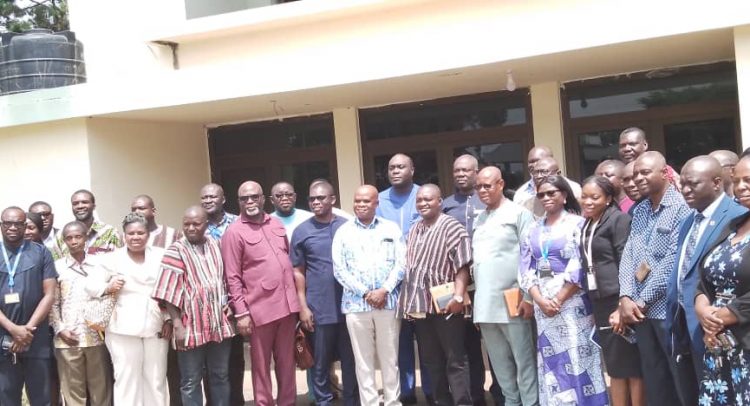The Chairman of the Parliamentary Select Committee on Environment, Science and Technology, Dr. Emmanuel Marfo, has assured research institutions of their commitment to address challenges facing them, especially in the area of funding.
He said this when the committee paid a working visit to the Ghana Atomic Energy Commission’s (GAEC) site at Kwabenya in Accra on Wednesday.
According to the Chairman, scientific research remains a key factor in the development of the country, but due to inadequate funding among other challenges, much has not been derived from their efforts.
He said, “Debate on science have been a major challenge in Parliament, we are trying to push for a lot more of these discussions to address the teething challenges facing scientist and scientific research in Ghana.”
He, therefore, expressed the committee’s commitment “to rekindle the discussions on the floor to help some of these research institutions access funding for some critical needs of research institutions in Ghana.”
The Chairman also indicated that the Ministry of Education has over the years been the sole sponsor of educational research though inadequate, and the committee will continue to engage them to do more while other alternative means of funding were considered.
He observed that most people have not appreciated scientific research, particularly in the area of atomic energy, and therefore asked the GAEC to adopt a more proactive approach to disseminate their research findings in a non-scientific manner to Ghanaians.
“A lot of people don’t know much about what the Atomic Energy is doing and has even done, some of these scientific research findings are sophisticated in the minds of people, they do not understand so find a better way of sensitising the public to appreciate what you are doing. This will also increase people’s understanding of the work of the commission for more state policy support,’’ he added.
Deputy Director General of the GAEC, Prof. Dickson Adomako in his response said the commission among others has over the years provided technical support to Ghana’s nuclear power programme, which is in its second phase of implementation to boost industrialisation and improve the country’s socio-economic development.
He stated, “Not only that but we have also contributed to the management of pest and insects in agricultural, medical and veterinary practice through the use of sterile insect technique. This technique has been used in eliminating sleeping sickness in the country and several others.”
Prof. Dickson however highlighted some challenges facing them, which include encroachment of GAEC lands at Kuntunse, limited number of vehicles for field work, under staffing, security issues amongst several others.
Members of the committee lauded the work done so far by the commission and promised to address their concerns, especially their locked up equipment at the port, without delay.
By Ebenezer K. Amponsah


